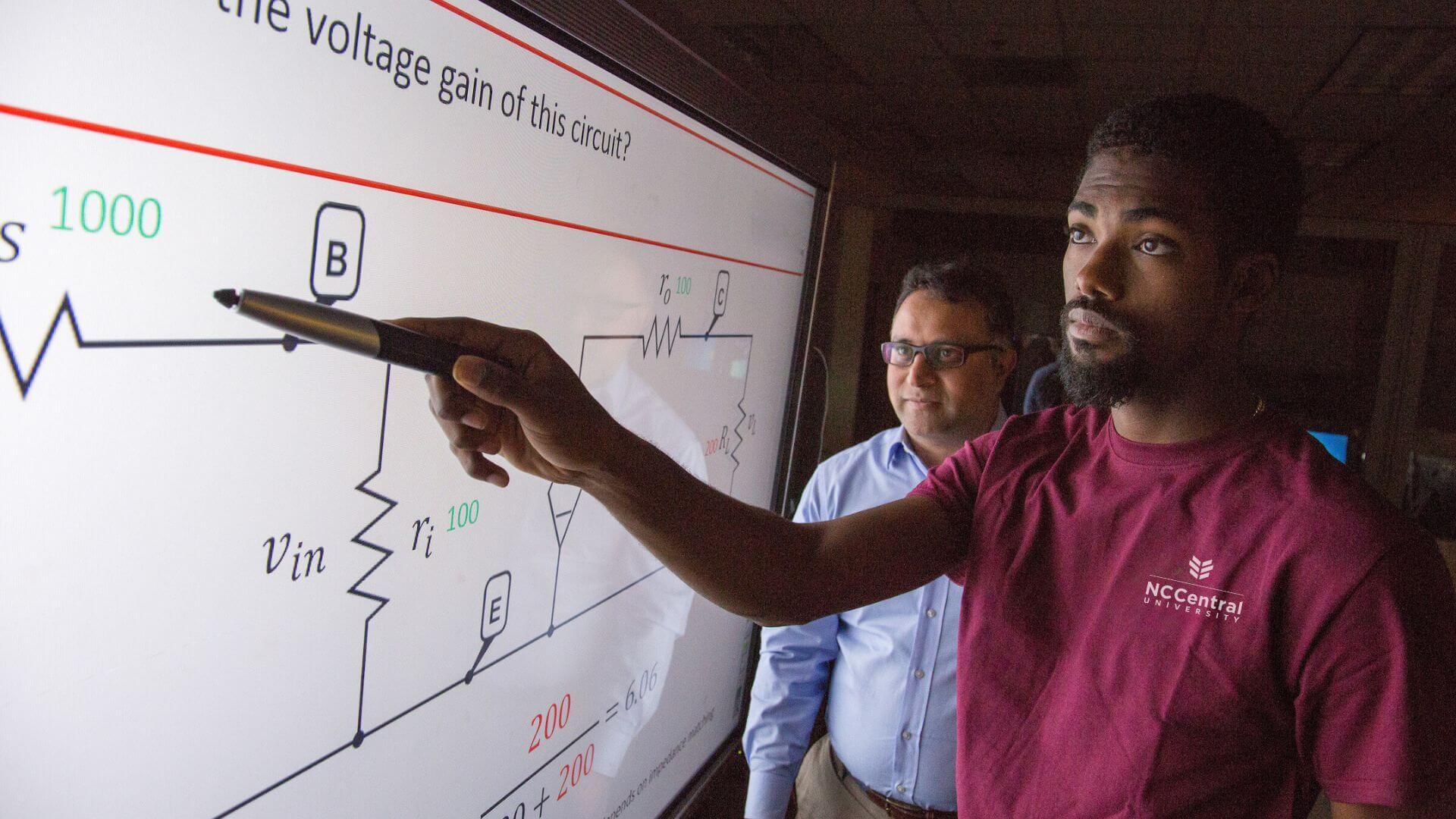When Ahmed Mohammed, Ph.D., dean of the North Carolina Central University (NCCU) College of Health and Sciences (CHAS), was first introduced to the NCShare partnership between North Carolina Central University (NCCU), Duke University, and Davidson College, he recognized the potential benefits it could bring to researchers at his institution.
“The NCShare opportunity was great from an infrastructure standpoint, offering higher bandwidth and improved connectivity to other R1 institutions with whom we have existing relationships. Broadly, it provides computational resources to our students and collaborating partners, which is a great benefit for our campus,” Ahmed explained.
At the time of the partnership announcement, Ahmed was an associate dean of CHAS and teaching a computational physics class. His focus was on leveraging the resources to enhance student instruction and streamline faculty processes.
“In the past, we’ve had to provide students with laptops and tablets to ensure they all had the same working environment, or we had to purchase additional software for a similar programming platform,” he noted. “However, with NCShare, if you have access to any computer, you can log in and everyone has the same platform. Teaching becomes less challenging, allowing us to focus on the subject matter.”
One of the primary benefits of the partnership, according to Ahmed, is the platform for data storage and transportation.
“We handle a lot of data analyses, and NCShare allows us to transport data across various campuses more efficiently,” he emphasized. “This is critical for analyzing different data tools and techniques.”
Ahmed has already begun to see the advantages of the partnership in his latest physics project with the Triangle Universities Nuclear Laboratory (TUNL), a U.S. Department of Energy Center of Excellence. The consortium, which includes NCCU, the University of North Carolina at Chapel Hill, North Carolina State University and Duke University, aims to advance nuclear physics research and educate students and young scientists.
Ahmed serves as associate director.
He is investigating the structure and interactions of nucleons to advance understanding of the universe’s origins, as suggested by the Big Bang Theory.
TUNL uses a high-intensity gamma-ray source (HIGS) facility for processing data. This facility normally costs $1,100 per hour to use. However, NCShare has significantly improved Ahmed’s efficiency in utilizing the facility, while also reducing his workload and time commitment to the project.
“The experiments we run can last 200 to 300 hours, potentially costing upwards of a quarter of a million dollars,” Ahmed explained. “NCShare tools allow us to effectively manage our data and demonstrate a solid data management plan to federal funding agencies. This allows us to make necessary adjustments sooner rather than later and minimize machine downtime.”
Before NCShare, Ahmed’s research would consume a terabyte of disk storage daily, requiring time-consuming data verification processes. However, the partnership has provided containers with necessary research tools, from large storage spaces to analysis software, to streamline the process.
“Another high-data-throughput access point is currently being installed at TUNL, which will enable even quicker data movement and analyses,” Ahmed said.
